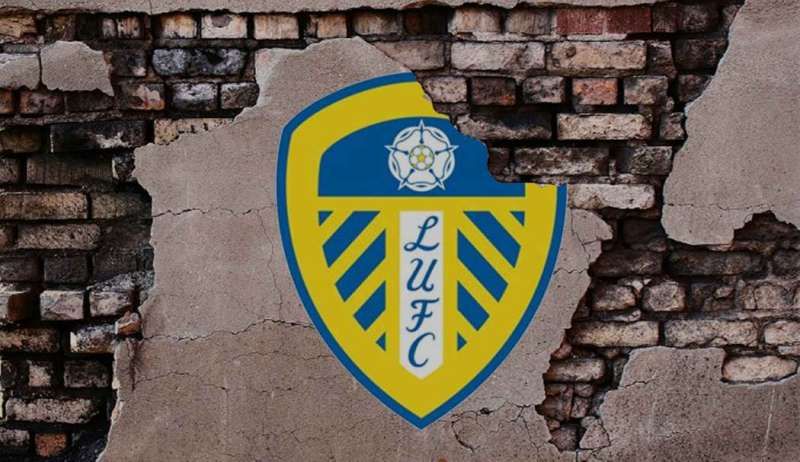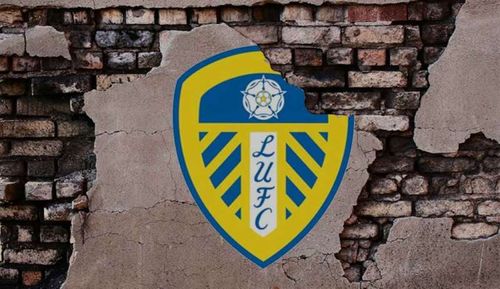
How Leeds United went from Premier League contenders to Championship obscurity
Leeds United. One of the most famous clubs in all of England and everyone’s favourite example when it comes to warnings about financial mismanagement. Long considered a sleeping giant alongside the likes of Nottingham Forest and Sheffield United, Leeds United is slowly recovering from the financial turmoil of the mid-noughties that saw them fall from grace.
Under new, trigger-happy owner Massimo Cellino, the club resides in the playoff spots in the Championship. As fans celebrate their season thus far, it’s difficult not to be drawn to their dramatic fall from grace. The club was always reasonably successful, enjoying its heyday in the 60’s and 70’s under revolutionary thinker Don Revie. Three-time first division winners, Leeds went through a slight slump before recovering in the late 1990’s under Arsenal’s legendary manager George Graham.
Leeds were never particularly well liked. Often called ‘Dirty Leeds’ for their shady dealings including a suspension from the English FA only two years after their formation for illegal payments made to players. Under Revie, Leeds became reviled and transformed from a relatively obscure team to one which famous for its dirty tactics.
This is best documented in the infamous Chelsea vs Leeds matches of the 60’s and 70’s which were famous for their unforgiving nature. The 90’s under Graham and successor O'Leary led to them establishing themselves as efficient as opposed to dirty and they based their success on a solid defence and the goals of one Lee Bowyer.
The solid foundations laid by Graham allowed Leeds to become regular in Europe with the club reaching the UEFA Europa League and UEFA Champions League semi-finals including the controversial semi-final against Galatasaray which saw the murder of two Leeds fans in Istanbul.
For a while, Leeds looked to be on the path of super clubdom with the Premier League title looking like a possibility, albeit a distant one.
The remarkable success of the club from West Yorkshire led to Chairman Peter Risdale taking out large loans against the money to be received via Champions League broadcasting rights in an attempt to take Leeds ‘all the way.’ This was the first misstep in a series of disasters that led to Leeds United’s dramatic fall from grace.
In his own words, Risdale cheated the club out of money and took a loan of £60 million of which only a part was invested into the club.
In a cruel twist of fate, the Peacocks failed to qualify for the Champions League in successive seasons and mounting debts led to them selling key players to fierce rivals (Rio Ferdinand to Manchester United, for example). The sale of key players led to frustrated managers and seemingly inexperienced squads. A merry-go-round of managers started as Leeds survived on the penultimate gameweek of the 2002/03 season. However, the writing was on the wall.
Managerial luminary Terry Venables and relegation specialist Peter Reid, both failed to arrest Leeds decline and a rash chairman and his broken promises led to a takeover by an insolvency specialist and a consortium who sold all players of any value, leading to a virtually unrecognisable Leeds United being relegated from the Premier League.
In a bid to stay afloat, Leeds sold their training ground as well as the famed Elland Road stadium. Matters were made worse when they lost the promotion playoff final the next season and lost out on a key financial purse from the Premier League.
A new owner in former Chelsea chairman and amasser of £80 million as debt, Ken Bates couldn’t save the club and with relegation virtually guaranteed, Leeds entered administration the very next season and in May 2007. A ten point deduction by the Football League led to Leeds reaching their personal rock bottom.
Manager Dennis Wise brought in, due to his connections with Bates from his Chelsea days, signed a variety of experienced loan players and free transfers, but to no avail- Leeds United were relegated to League One. A first in the proud history of a club that had never played below the second tier of English football.
The one constant in this story were the Leeds fans. They stuck by their club through thick and thin, witnessing it being bounced around by Arabs and multiple mysterious offshore companies. Despite being called ‘morons’ by new owner Bates in 2011, they continued to turn up to support their team and it seems that their own long and arduous toil is starting to pay off.
They were promoted back to the Championship after two seasons in the third division and yet remarkably, the manager responsible for their initial success, Simon Grayson, was sacked. There remained an air of uncertainty about Leeds when it was purchased by a Middle East-based equity group.
Suspicions would be proved correct as the group ran out of money within a year of owning the fallen giants. This saw the entry of Cellino. With his ownership blocked by the Football League due to a conviction of tax evasion in his native Italy, Leeds were thrown into turmoil yet again and they struggled in the Championship, at one point looking candidates for relegation.
When he did takeover at Leeds, Cellino created an unstable environment. He sacked managers and coaches on the basis of whims and never gave them enough time. Despite his questionable methods, the appointment of Gary Monk seems to have turned the club’s luck around. The fans are finally getting what they deserve as Leeds are currently in the playoff spots and are fighting for promotion.
Long may their recovery continue!
The story of Leeds is one of hardship and financial ruin caused mainly by a chairman who was greedy for success. Logic and sense were abandoned and Leeds suffered from a self-inflicted wound that it is still recovering from. Despite winning promotion back to the Championship, Leeds have struggled there. Mid-table mediocrity has been the order of the day under Massimo Cellino.
As football becomes more and more commercial, the chances of a club ‘doing a Leeds’ in their quest for success has never been higher. There are finally signs of recovery as the Yorkshiremen fight back end under Garry Monk, they look to be bound for the playoffs.
Also Read: Cellino sells half of Leeds Utd to fellow Italian Radrizzani
To be back in the Premier League would be fantastic for the club and well deserved for the fans. For the rest, Leeds United’s cautionary tale should serve as a reminder. A reminder to budding clubs and excitable chairmen to not get ahead of themselves and to focus on sustainable growth and development.
